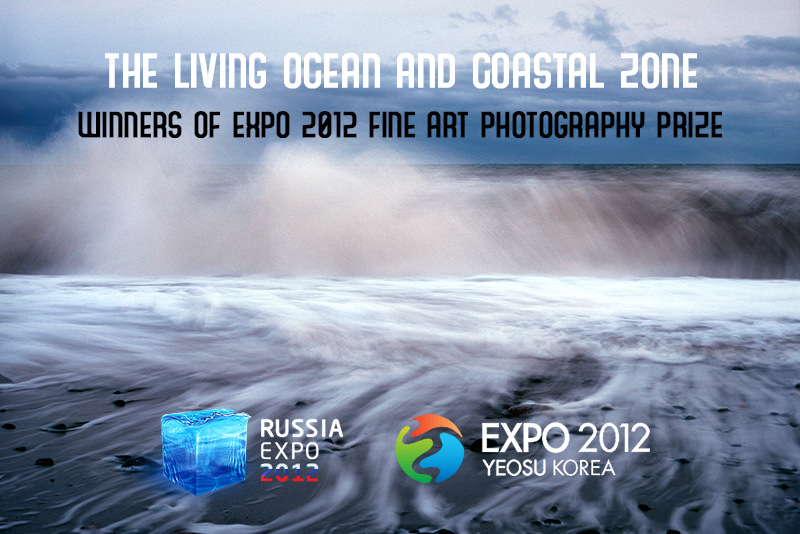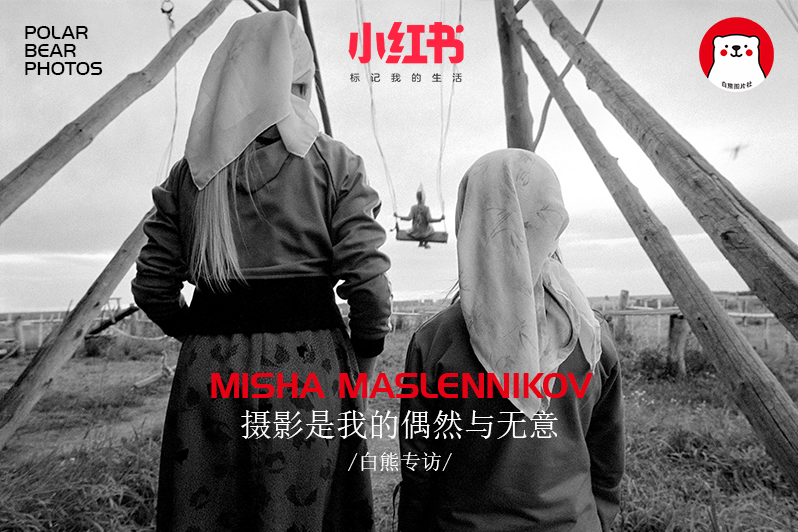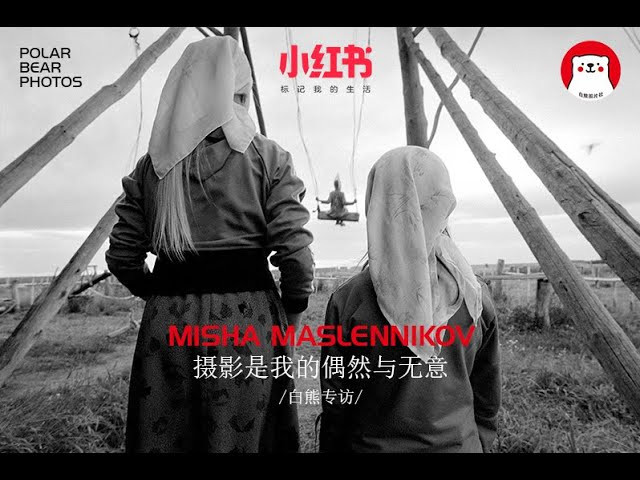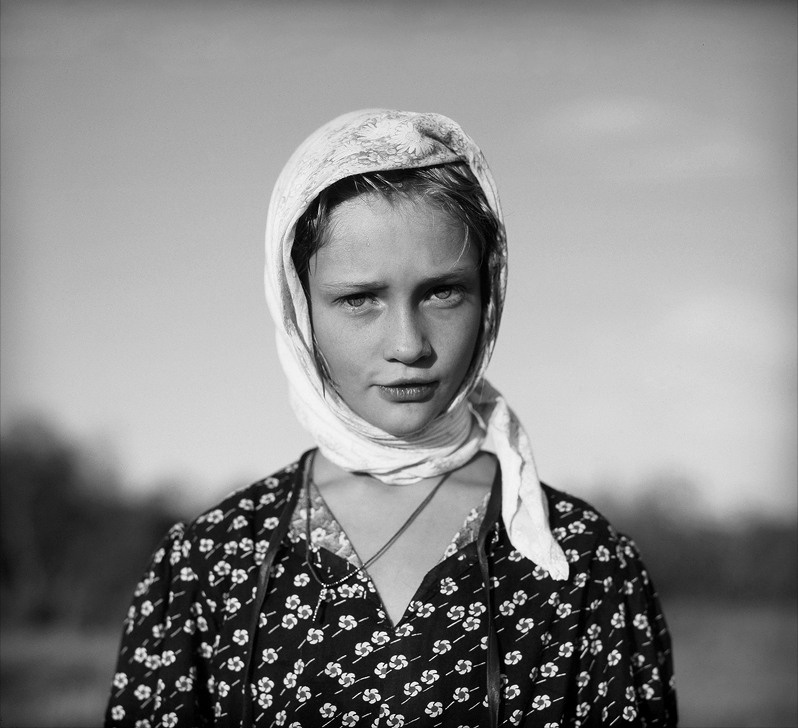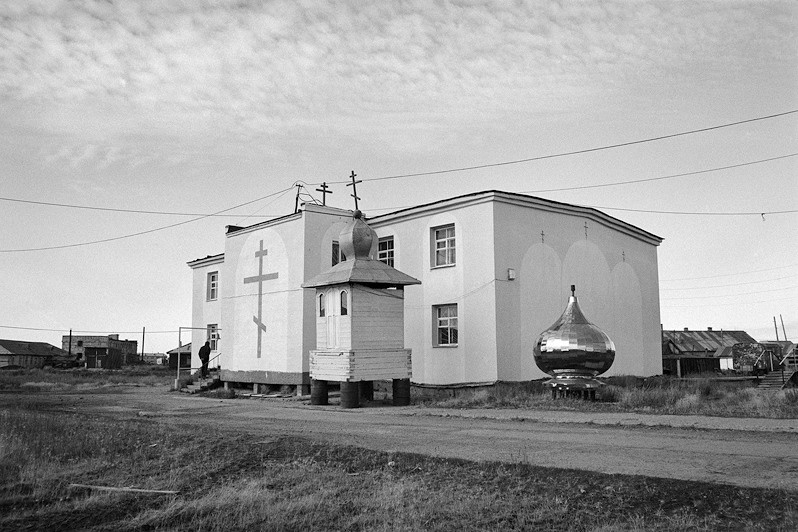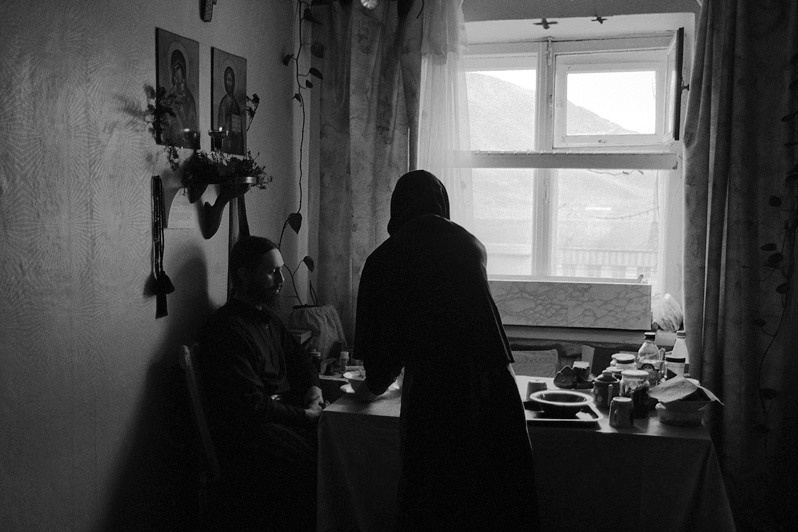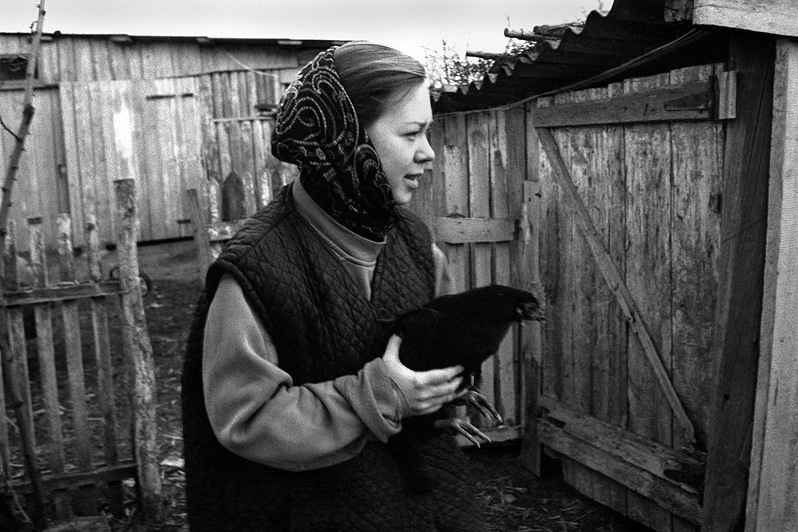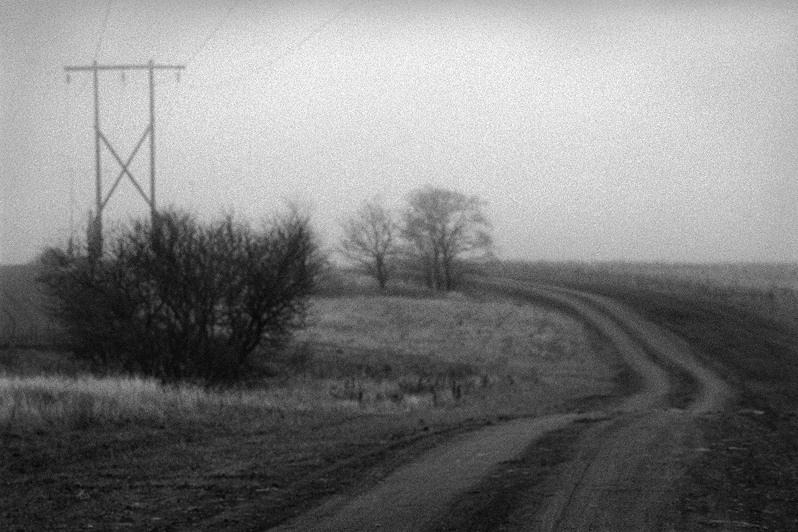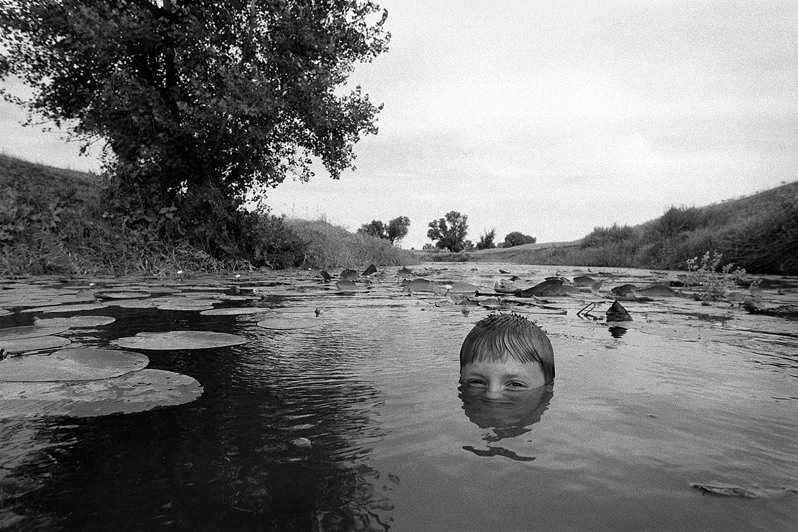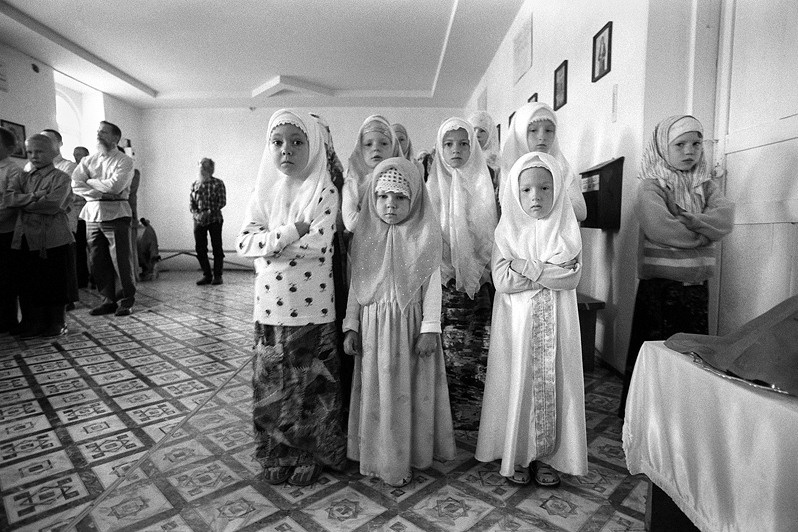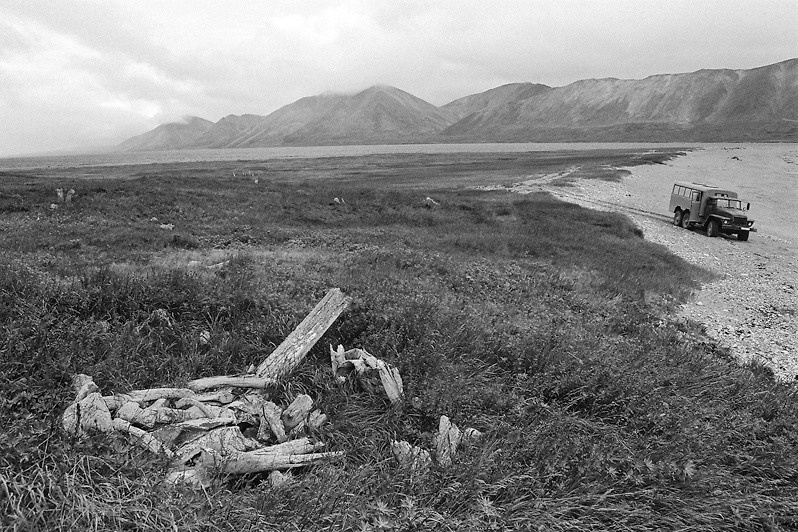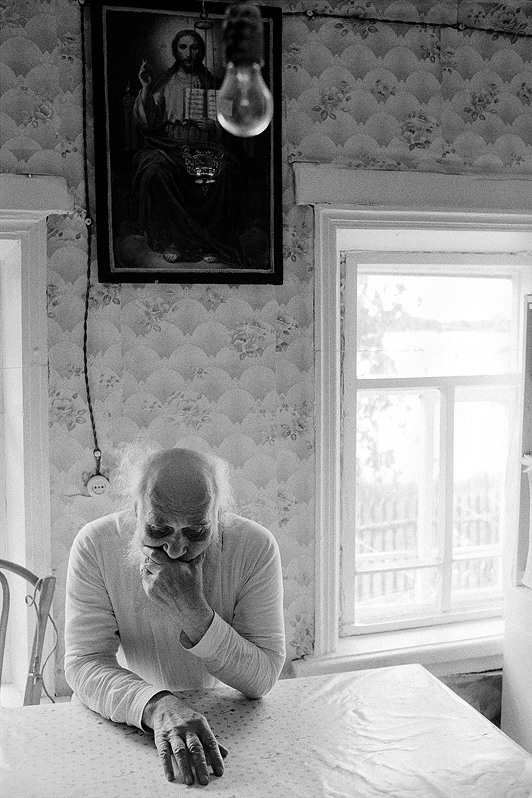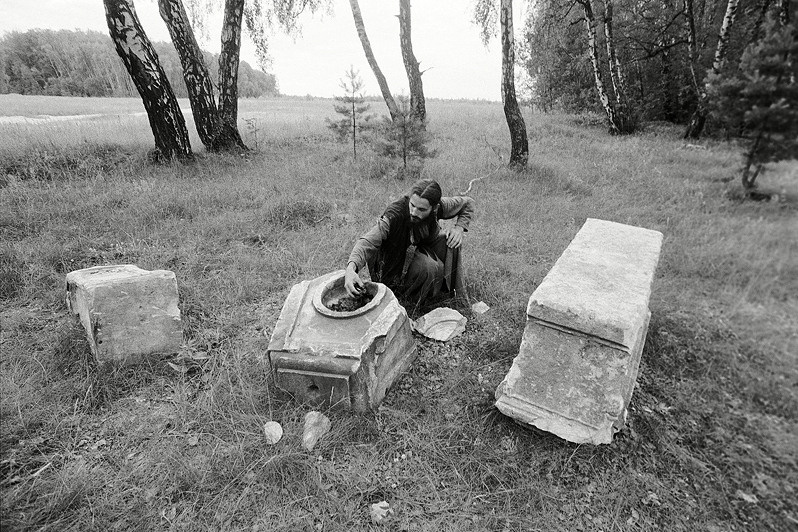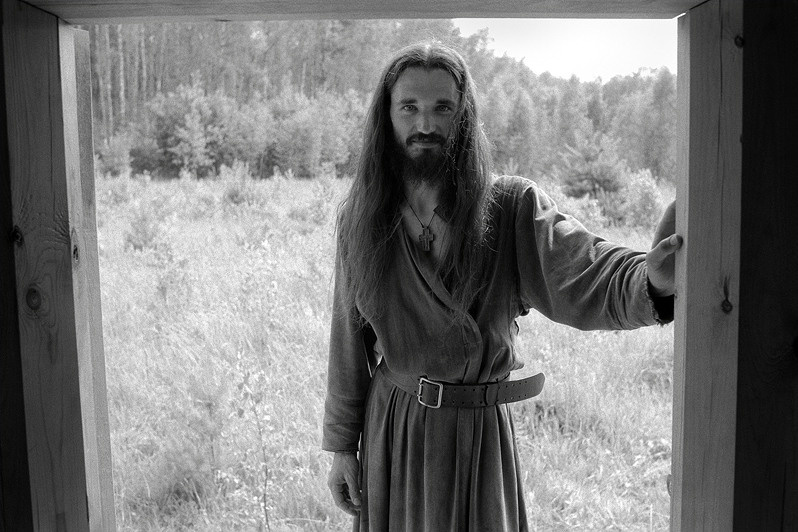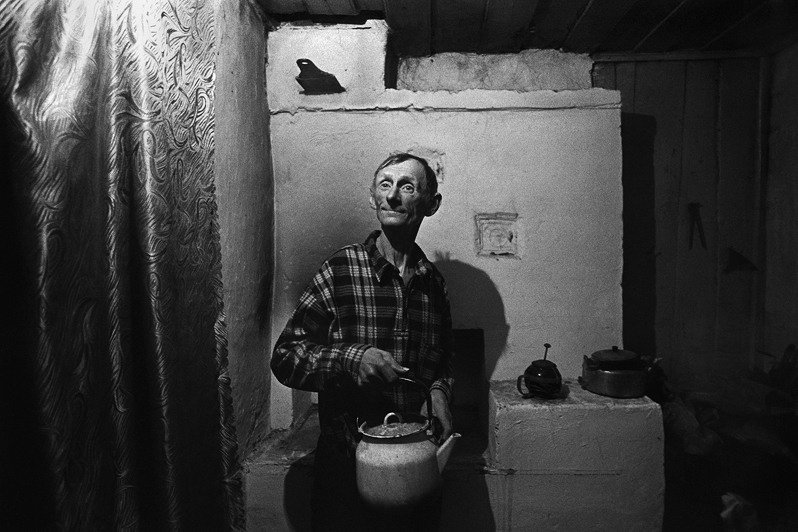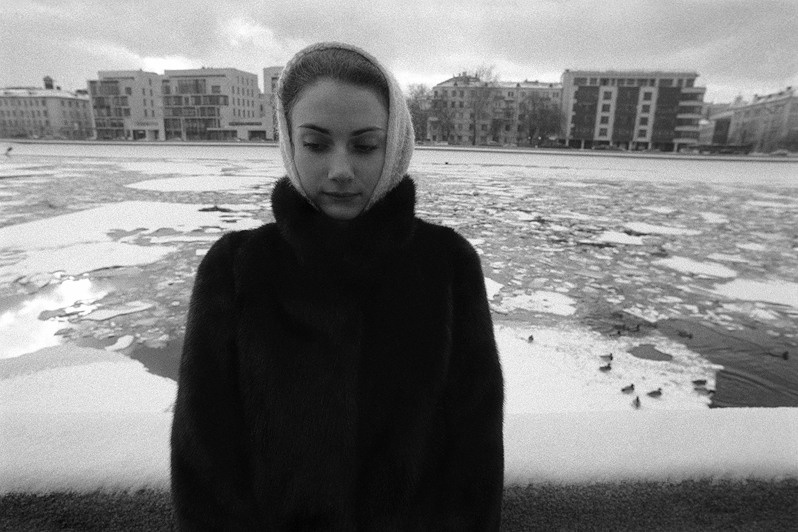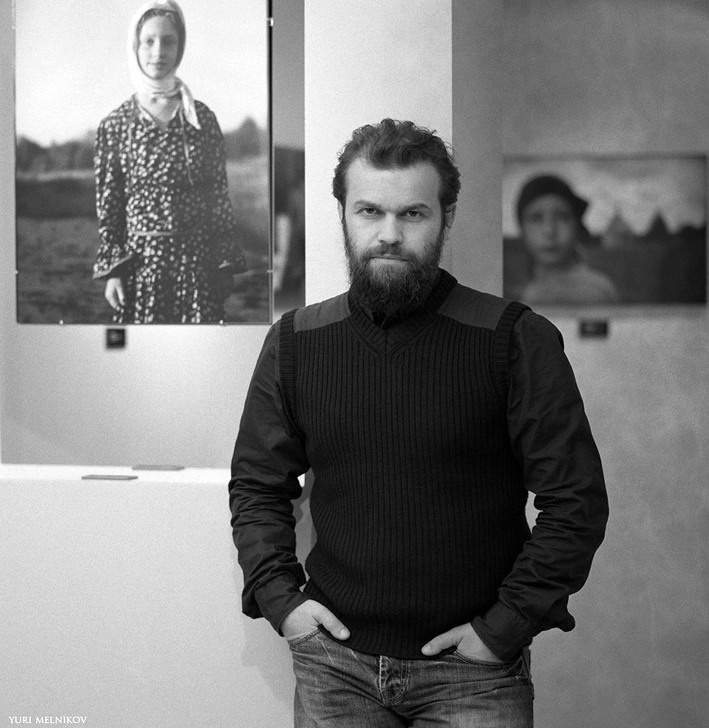Interview with Polar Bear Photos
An Li Nan
Part I
Photography is my accidental and unintentional
Photographer Misha Maslennikov was born in 1964 in the village of Dobroe near Moscow. Since the middle of 2005 Misha became interested in photography and seriously thought about a way of expressing his thoughts through photography.
He often travels alone to remote places, paying special attention to visiting monasteries and ancient temples, where he documents people’s way of life and comes into real interaction and contact with the inhabitants of the hinterland. When I first saw Misha’s work, it seemed very readable to me: a traditional-classical documentary approach, down-to-earth filming, and in terms of emotions — loneliness, heaviness and a deep aura. So I contacted Misha and had a chat with him about photography:
1. How did you get started in photography?
Misha: For me, photography began by chance, spontaneously, unintentionally. As a young man who studied applied arts, and before that had an art degree, then studied theology at university, I often went on long journeys to remote and isolated villages, northern monasteries and the tundra in search of the meaning of life. I first picked up a camera when I was in my early 40s, and as soon as I saw the photographs developed, I almost immediately decided to become a documentary photographer.
2. How do you structure your work? How do you choose what to photograph?
Misha: On the one hand, being a perfectionist, I take any work, especially creative work, very seriously. I study the existing material on the chosen subject, study the peculiarities and traditional way of life of the people I will meet and make plot adjustments on the spot. As a rule, I am very careful in my choice, but I am always surprised by the gifts of fate, and I must always be ready to meet something extraordinary and unplanned. In short, ready to meet a miracle.
3. Is there a photograph that really struck you during the shoot?
Misha: I would choose a photograph where a small miracle happened, and not just because it looks good. For example, some moments that you thought you lost but ended up capturing are perceptual experiences and God’s marvellous Providence.
Misha Maslennikov has a very rigorous photography and he is a very serious person, I had a lot of conversations with him about photography afterwards and we will talk more about him in the future.
Edited/written by An Li Nan
BGM: Shockwave-Sound — Tchaikovsky: Barcarolle June (Boat Song) The Seasons.
*The above conversation and works are shown at White Bear Pictures with permission of photographer Misha Maslennikov.
第一部分
摄影是我的偶然与无意
/白熊专访/
摄影师米沙·马斯连尼科夫(Misha Maslennikov)1964年出生在莫斯科附近的多布罗聚居地。自2005年中期开始,Misha开始从事摄影,并且认真思考以摄影表达思想为目的的方式。
基本上他都单独前往偏远的地方,特别是访问修道院及古老的寺庙,他记录这里人们的生活方式,并与乡村居民进行真实的交流和接触。第一次看到米沙的作品,就觉得很有阅读感,他采用非常传统的纪实方式,踏实地用镜头记录,在情感方面又透出孤独、厚重而深沉的气质。于是我联系上米沙,和他有过一些摄影方面的交流:
1、你是如何开始摄影的?
Misha:偶然、自发、无意地开始了摄影。年轻的时候我学习应用美术和美术教育,在大学里还学习了神学,我经常踏上长途旅程,前往偏远与孤立的村庄、北方的修道院和苔原,寻找生活的意义。40岁时,我才第一次拿起了相机,当看到照片洗出来的时候,我就打定主意要成为一名纪实摄影师。
2、你如何构建作品?如何选择要拍摄的内容?
Misha:一方面,作为一个完美主义者,我对每一项工作,尤其是创造性的工作都非常认真。我会了解选定主题的现有资料,研究我将要遇见的人们的特点和传统生活方式,并在实地进行故事情节的修正。通常情况下,我的选择非常谨慎,然而,我总是对命运的馈赠感到惊讶,我必须时刻准备遇到一些非凡的、未计划的事情。简而言之,准备遇见奇迹。
3、有没有哪张照片在拍摄的时候让你印象非常深刻?
Misha:我会选择一张发生了小小的奇迹的照片,而不仅仅是因为好看。比如一些你以为失去,但却抓住的瞬间,这是一种感性的体验,也是上天赐予的美妙礼物。
Misha Maslennikov的摄影非常的严谨,而且他是极其认真的人,后来我和他经常聊起关于摄影的话题,以后我们还将带来更多关于他的内容。
编辑/撰文 安礼楠
BGM:Shockwave-Sound — 柴可夫斯基:六月(船歌)‧四季
*以上对话内容及作品经过摄影师Misha Maslennikov本人同意在白熊图片社展示
Part II
Misha Maslennikov’s Tips for Beginning Photographers
Born in 1964, the famous Russian documentary photographer photographer Misha Maslennikov can be said to be an old friend of Polar Bear Images, and recently he talked about some of the advice he gives to novice photographers, and especially here to share it as well, here is what Misha Maslennikov told us:
“If you are a serious photographer, if you study the basics of photography at specialist institutions or if you have a good mentor privately, then you will definitely learn a lot and gain the most important things to know about photography from your teachers. You will learn about the process itself, about the history of photography, and all this is not insignificant… Because the recipe for good photography lies first of all in formatting the photographer’s own consciousness, his versatility of views, his self-education or education in the classical sense. Mechanically, I would suggest trying to draw, even if you are not a professional painter or calligrapher, it doesn’t matter, you should try to capture a certain subject or image without any technical means.
And of course, to master technology, in particular, I would recommend diving into analogue processes — going back to the roots of photography, trying to shoot on film yourself, print by hand and making a selection of photos that are laid out as prints on your desk. Because, in my opinion, the digital world, into which we have dove and I fear we will never come up again, is penetrating all areas of human activity too intensively. Not to mention images, which in turn are also constantly transforming and in the future will take on some other, perhaps holographic form. However, it all turns into soulless simulacra, whereas real photography is warm, it has soul, it has depth within itself, it has space… I’m talking about prints, tactile photography which should hang on the wall and delight the viewer in an interior, museum or exhibition space…
But I put self-development at the centre of it all. Photography is a human being, first of all. And only his own inspiration — I’m not even talking about talent, I’m talking about his ambition to prove himself in photography, his desire to continuously improve — determines the final result and, if he is lucky, the work of art. Again, to continuously improve and simply be a good person. A photographer has to be a good person. All the real photographers I know, who are no longer with us, they were great people. They were unique and amazing, so their photography, too, is amazing and unique.”
Editor/writer by An Li Nan
*The content of the above dialogue and the work has been shown at White Bear Images with the permission of the photographer Misha Maslennikov himself, and with respect to his wishes not to make too many cuts.
第二部分
MISHA MASLENNIKOV给新手摄影师的建议
/白熊专访/
1964年出生的俄罗斯著名纪实摄影师摄影师米沙·马斯连尼科夫(Misha Maslennikov)可以说是白熊图片社的老朋友了,最近他谈到了自己给新手摄影师的一些建议,特别在此也分享一下,以下是Misha Maslennikov对我们的讲述内容:
“如果你是一位认真的摄影师,如果你在专业机构学习摄影基础知识或者私下里有一个优秀的导师,那么你一定会从你的老师那里学到很多,你需要了解摄影的过程本身,了解摄影的历史,而这些都是非常重要的……因为出色的摄影首先在于塑造摄影师自己的意识,他的多元视角,他的自我学习。我甚至建议尝试一点绘画,即使你不是专业画家或书法家,这并不重要,重要的是可以尝试在没有任何技术手段的情况下捕捉某个主题或形象的能力。
“当然,说到技术层面,我则建议深入研究传统的过程,让自己回归摄影的初衷,可以试试自己拍摄胶片,手工冲洗,自己学会选择照片。在我看来,数字世界已经渗透到人类活动的各个领域,我担心我们将永远不会再浮出水面。更不用说影像了,它们也在不断转变,并且未来还会有更多其他的形式。然而,我们需要避免一切都变成了没有灵魂的模仿品,真正的摄影是温暖的,它有灵魂,它内部有深度,它有空间……我谈的是实体的照片,当摄影挂在墙上,观众在室内、博物馆或展览空间中去观看并感受到它。
“最后,我建议把自我发展放在一切的中心。摄影首先是个人的,而且只反映出摄影师自己的灵感。注意,我并不是在谈论天赋,我是在谈论摄影师如何在摄影中证明自己,这是一种雄心和愿望,而正式这,决定了最终的结果,决定了作品的艺术性。不断提升并成为一个善良的人。我认为摄影师必须是一个善良的人,他们独特而了不起,所以他们的摄影作品也是独特而且独特的。”
编辑/撰文 安礼楠
*以上对话内容及作品经过摄影师Misha Maslennikov本人同意在白熊图片社展示,并尊重他的意愿不做过多删减。
news
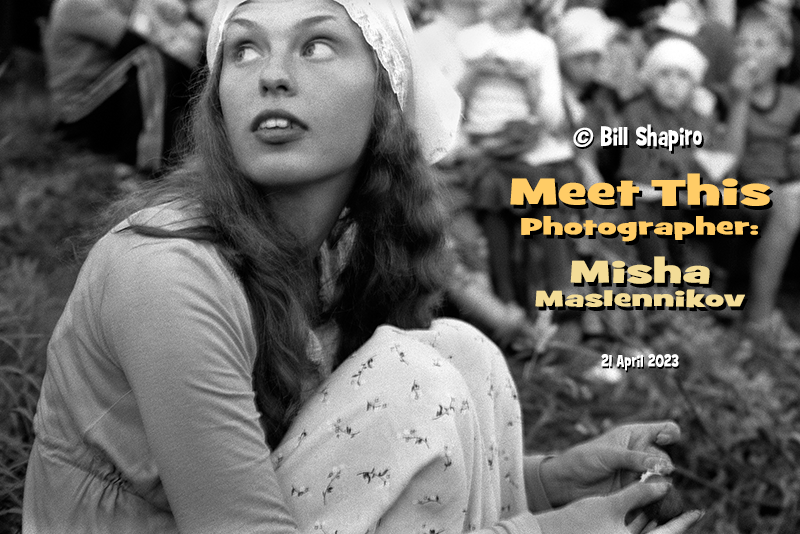
Meet This Photographer 2023
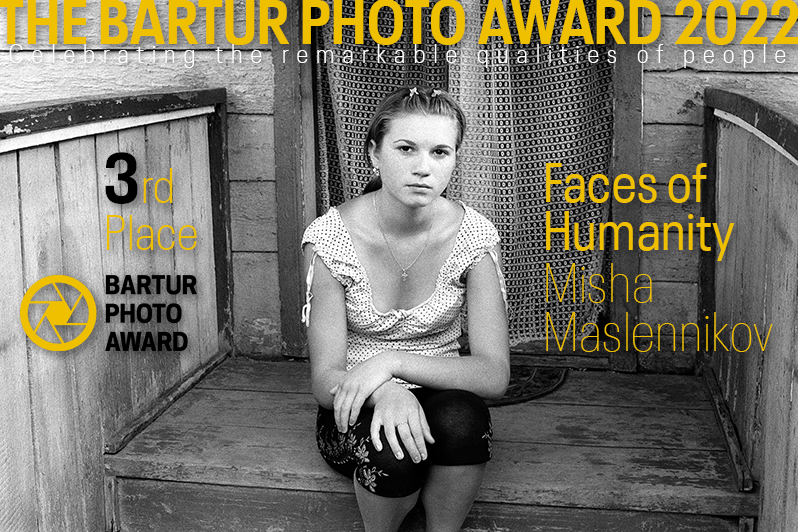
The BarTur Photo Award 2022
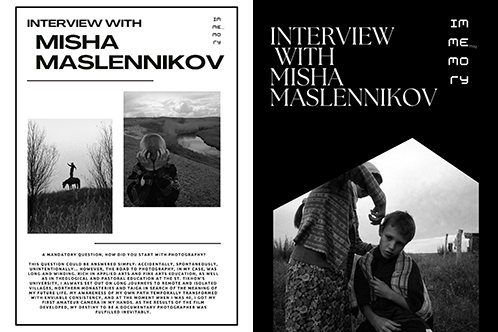
Immemory 2022
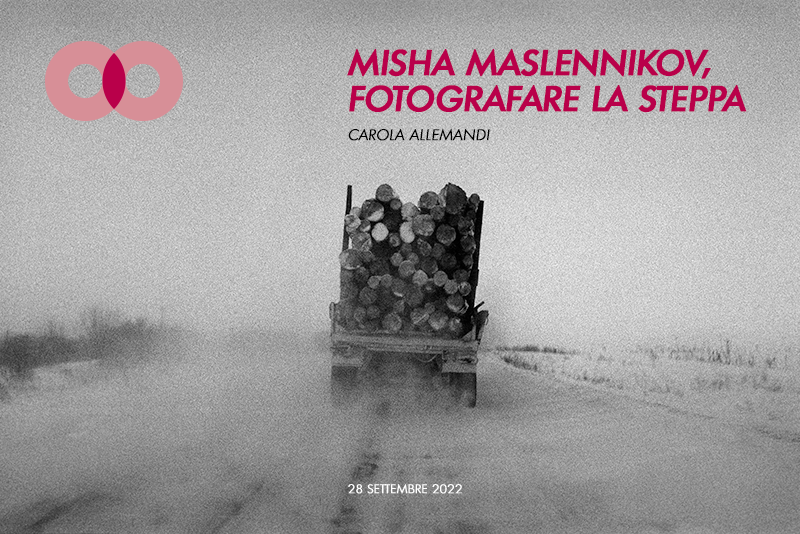
Doppiozero 2022

World Report Award 2022
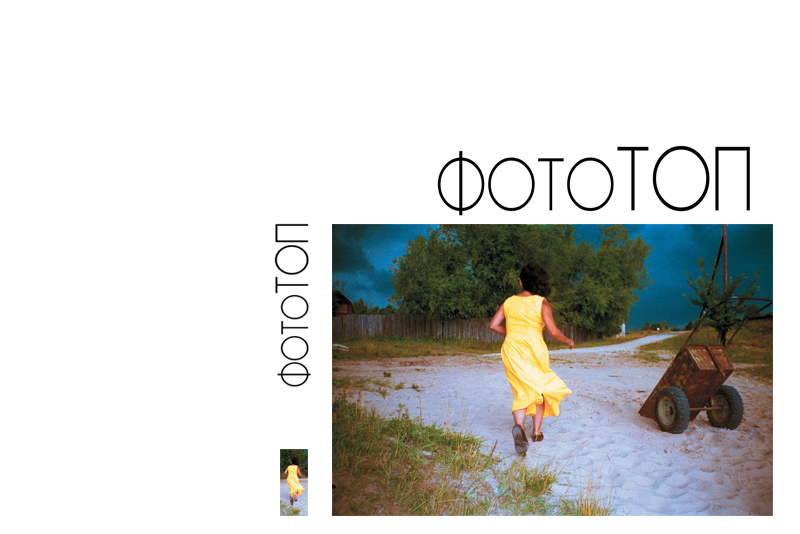
Album PhotoTOP 2021
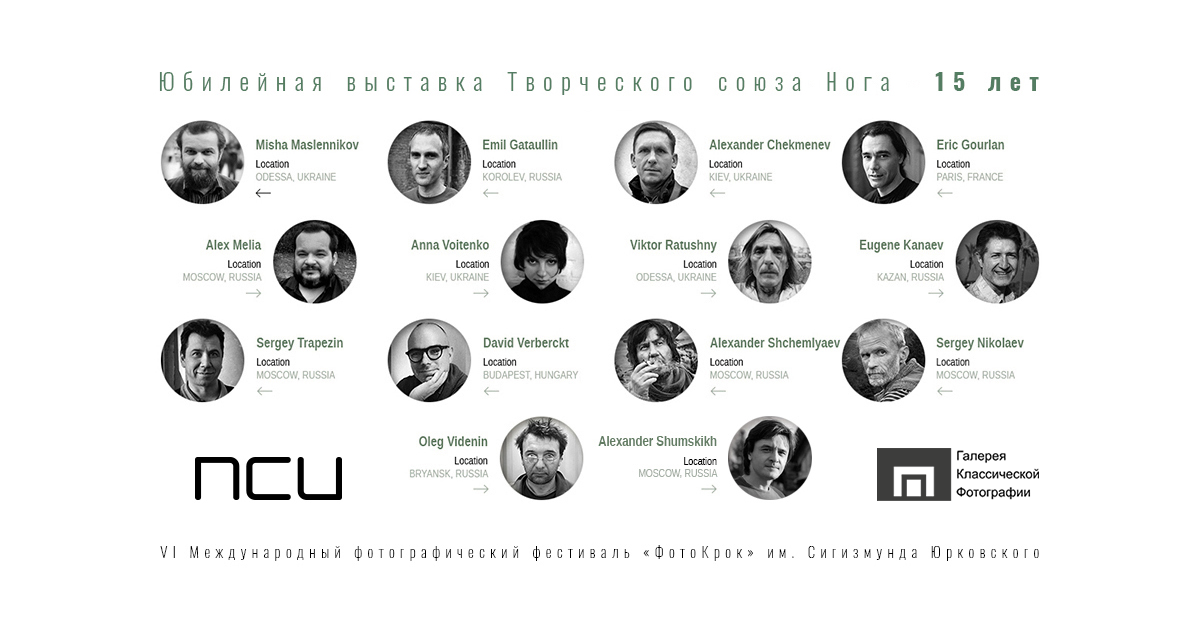
PhotoTOP 2021
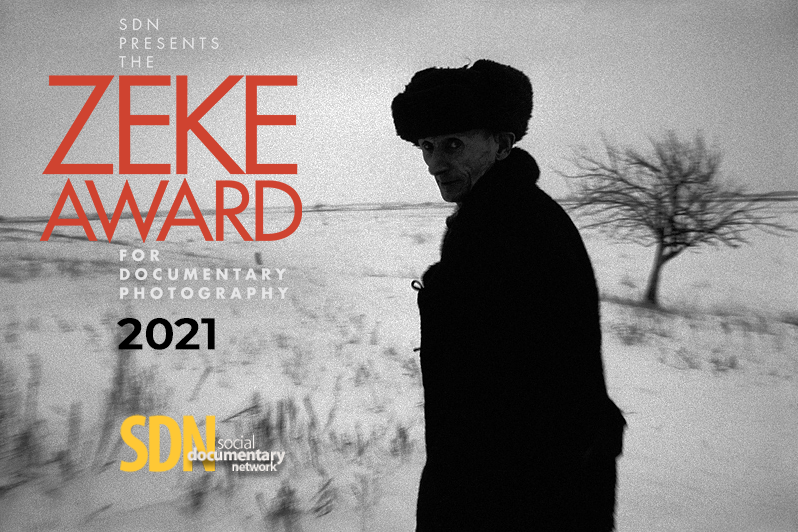
ZEKE Award 2021
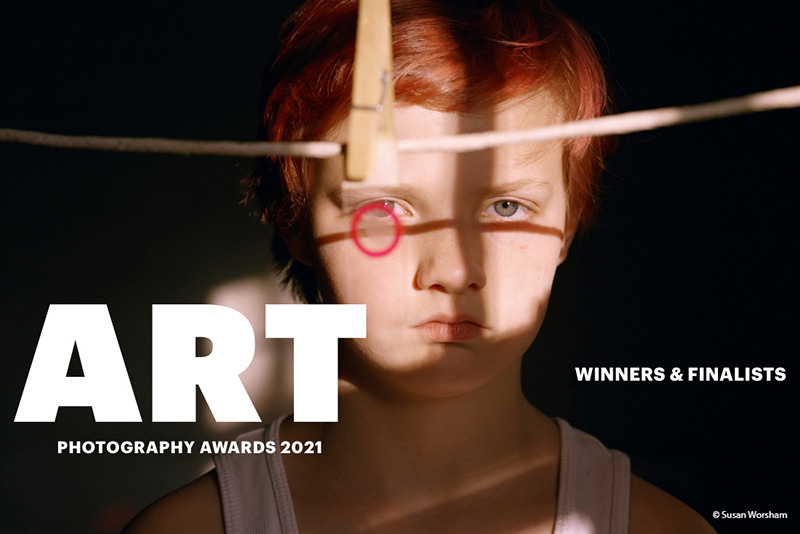
LensCulture 2021
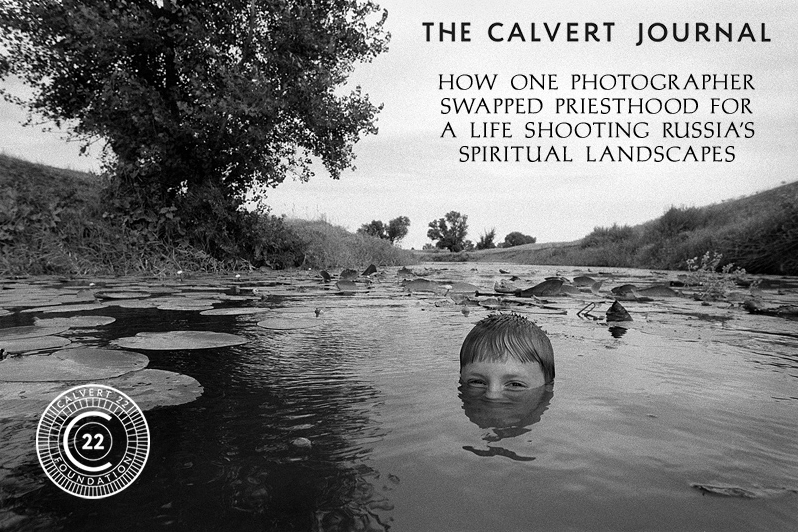
The Calvert Journal 2020
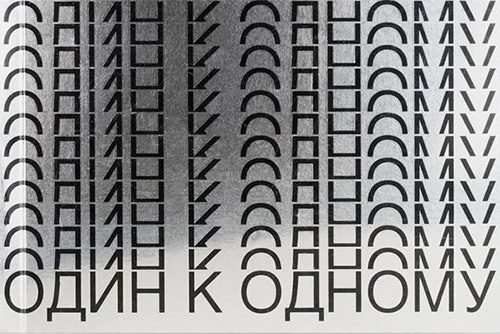
One for One 2020
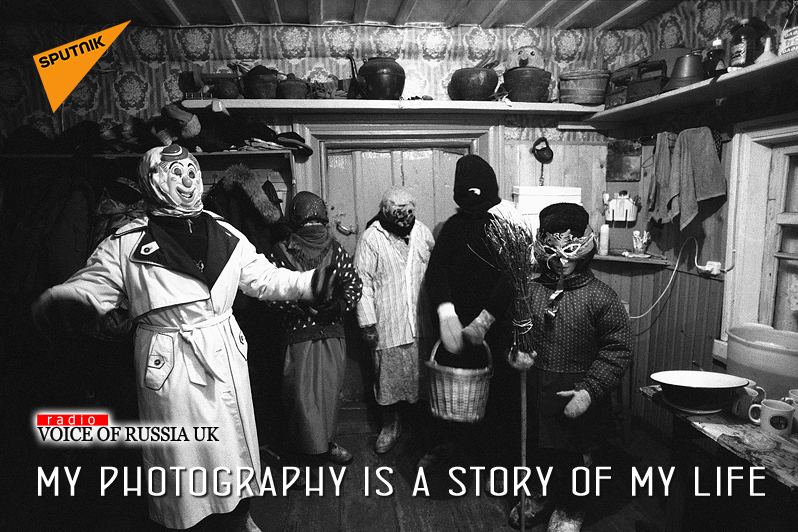
The Voice of Russia UK 2012
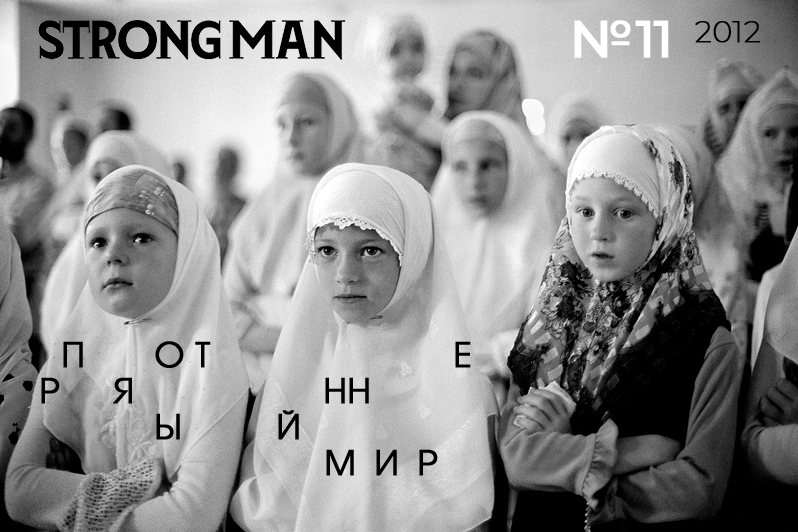
Strong Man 2012
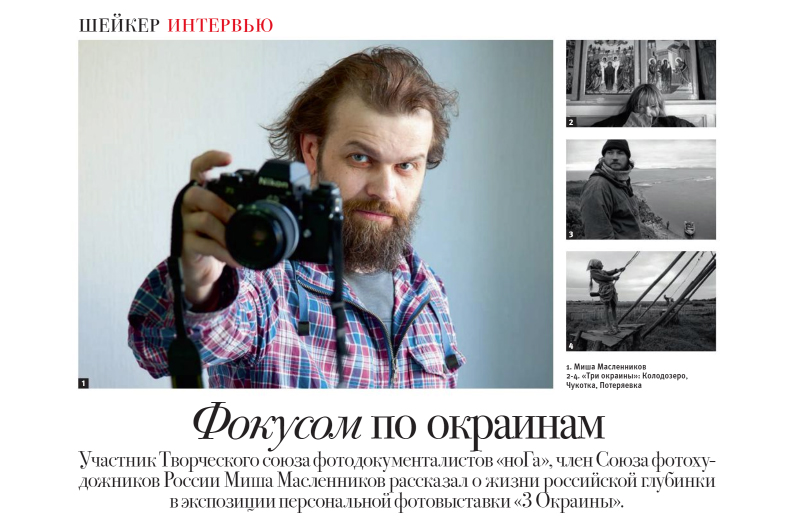
EKB.Sobaka.ru 2012
